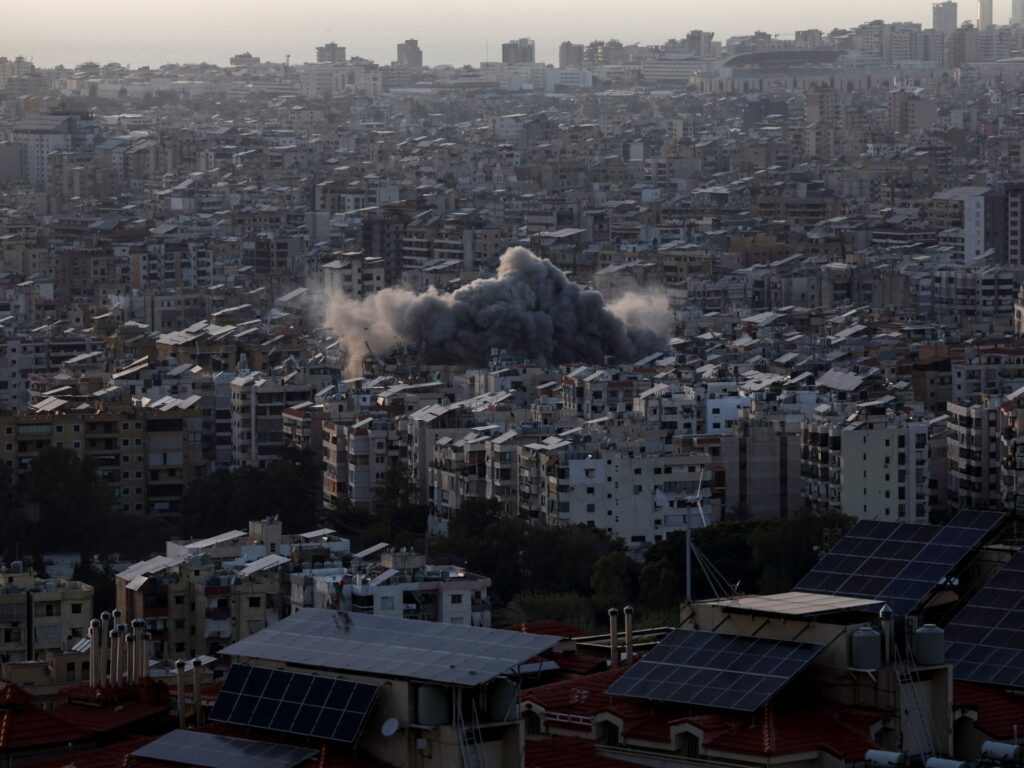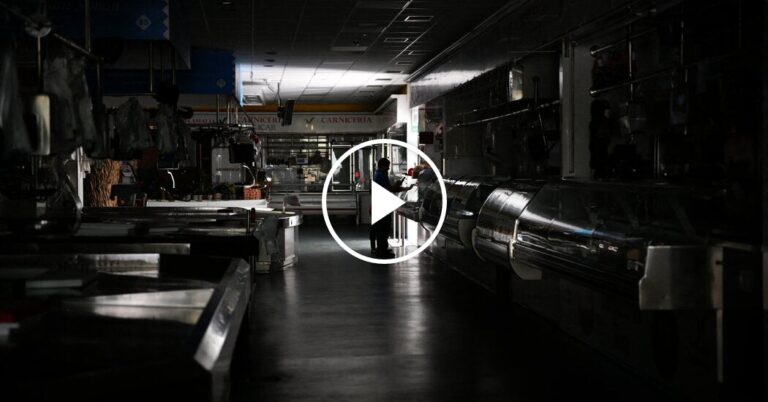
Israel has violated the November ceasefire multiple times, attacking the Lebanese capital and the south.
Israel has struck Beirut’s southern suburbs after issuing an evacuation warning, the third Israeli strike on the Lebanese capital since a ceasefire took effect in late November.
A huge plume of smoke rose over the area after the strike on Sunday. There was no immediate word on casualties.
Lebanese President Joseph Aoun condemned the air strike and called for France and the United States, guarantors of the November 27 ceasefire between Israel and Hezbollah, to compel Israel to halt its attacks. Israel has violated that truce multiple times in recent months and weeks with attacks on the capital and across southern Lebanon.
Aoun said Israel is undermining stability in Lebanon and escalating tensions, posing “real dangers to the security” of the region.
The Israeli military said the attack on Beirut destroyed “an infrastructure where precision missiles” were stored by Hezbollah. It did not provide proof for its claim. No secondary explosions were reported after the Israeli attack.
Local platforms have published footage filmed in the immediate aftermath of the bombardment. This video has been verified by Al Jazeera:
بالفيديو: دخان كثيف يتصاعد من “الهنغار” المُستهدف في منطقة الحدث بالضاحية الجنوبية pic.twitter.com/nLle4DuG8I
— هنا لبنان (@thisislebnews) April 27, 2025
‘Damage widespread’
Al Jazeera’s Zeina Khodr, reporting in Beirut, said: “We were able a short while ago to reach the site that was targeted, but there was a lot of chaos, and we were told to leave.”
“The damage was widespread, also affecting nearby buildings. Windows were blown out, glass was on the floor, cars were damaged,” she added.
“This strike did come with a warning but without any provocation,” Khodr said. “This is not the first time that Beirut’s southern suburb has been hit since Israel and Hezbollah agreed to that ceasefire back in November, but this time, there was no rocket fire. So people here are concerned that Israel is rewriting the rules of engagement, saying that there are no red lines any longer and that this could be the beginning of an escalation.”
‘Pinging the system’ for intelligence
Elias Hanna, a retired Lebanese army general, told Al Jazeera the Israeli strike on Beirut – and the warning that preceded it – may have been aimed at gathering intelligence on Hezbollah.
Hanna said such an operation is known as “pinging the system”.
“If you have information on certain individuals or facilities, you send the warning, and you wait to see how these officials or leaders will respond,” he said. “Will they move from one place to another?”
Hanna added that the operation could confirm or dismiss certain information, which would be a “win-win” scenario for intelligence gathering.
During the yearlong war, Israeli drones and fighter jets regularly bombarded the southern suburbs of Beirut, where Hezbollah has widespread influence and support. Israel assassinated several of Hezbollah’s top leaders there, including Secretary-General Hassan Nasrallah.
The US has pressured Lebanon to disarm Hezbollah, but Aoun has warned this is a “delicate” matter that must be handled in a way that preserves peace in the religiously diverse country. Hezbollah, which views itself as the resistance to Israel, says it will not disarm.




